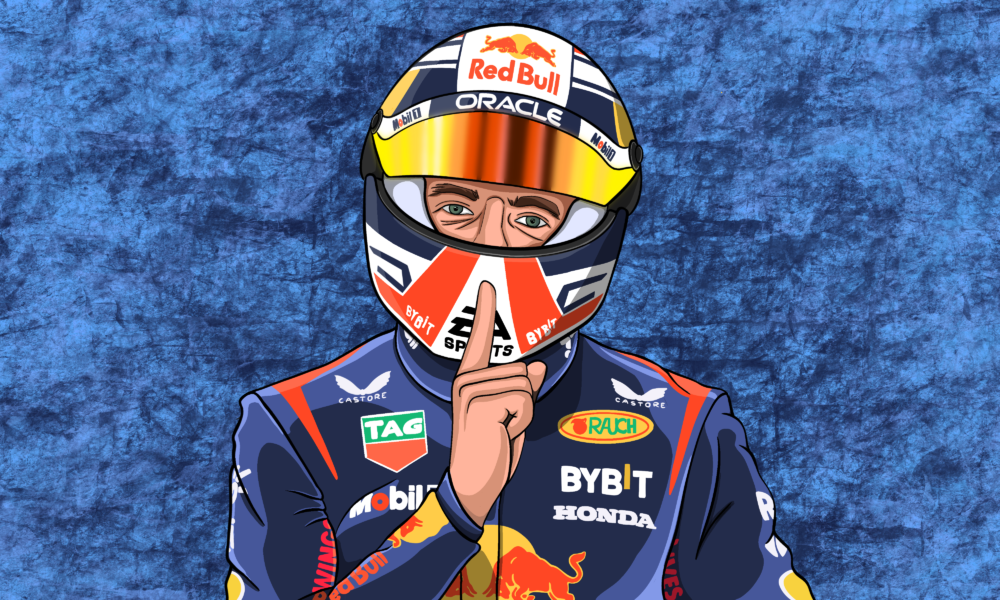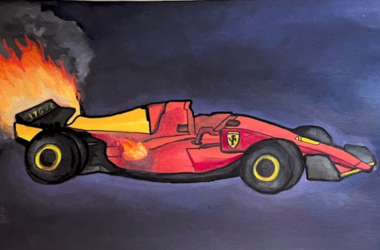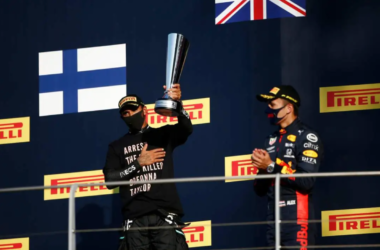After a less-than-stellar performance in the qualification and race at the 2024 Azerbaijan Grand Prix in Baku, Max Verstappen used an expletive during a press conference when defining his car’s level of performance. From a seemingly innocuous lapse in professionalism by an athlete in the middle of an intense title race came a €10,000 EUR (nearly $15,000 CAD) fine and mandated community service time from the Fédération Internationale de l’Automobile (FIA). This move sparked a debate between F1 drivers and the FIA on the true role of the athletes.
Not long after Verstappen’s infraction, a similar incident occurred with Ferrari’s Charles Leclerc, who, in a press conference following the Mexico City Grand Prix, used a curse word to describe his reaction to an incident during the race where he nearly crashed his car into the barriers. Leclerc, like Verstappen, was fined €10,000 EUR. Following these two incidents, the Grand Prix Drivers’ Association (GPDA)—the F1 drivers’ union—released a statement denouncing the FIA’s actions. The statement says that, while they must abide by the “referee’s decisions” like all athletes, there is a clear difference between cursing directly at someone with an intent to harm them and more “casual swearing” used as a descriptor instead of an insult. The GPDA argued against the FIA’s monetary punishment of drivers and offered to help make rule changes to avoid future controversies.
These two incidents call into question the role of drivers as it pertains to their status as role models. Do athletes always need to be on their “best behaviour,” without any room for slip-ups? That’s not to say that they should be able to say whatever they want, but a €10,000 EUR fine for an expletive not directed at any specific person seems to be quite a steep penalty. Considering that F1 has no problem posting censored videos of their drivers swearing (often directed towards others in an insulting manner) to their own social media to the tune of millions of views, why would Leclerc and Verstappen be punished for cursing at a press conference which would almost certainly have far fewer eyes on it?
This situation was further complicated when FIA President Mohammed Ben Sulayem made comments comparing the foul-mouthed drivers to rappers and pleaded for them to keep their speech clean—a sentiment many deemed to be racially insensitive. This is not the first time Ben Sulayem has clashed with a driver. In 2022, he repeatedly made statements to the media criticizing Mercedes driver Lewis Hamilton—the only Black driver on the grid—for wearing jewelry, threatening fines if it was not removed. Some of Hamilton’s jewelry was permanent and could only be removed surgically. Hamilton was one of the first to call out Ben Sulayem’s “rapper” comments, saying that there was a “racial element” to them. The precedent of underlying tensions between Ben Sulayem and the drivers is part of why the GPDA was so quick to step in and defend both Verstappen and Leclerc.
Regardless of any of Ben Sulayem’s personal bias towards the drivers, the FIA must seriously consider what the GPDA has to say. These drivers, at the end of the day, are elite athletes who are ruthlessly competitive and should not be expected to regulate everything they say following a disappointing performance. Athletes should not have free reign in their statements to the press, but the FIA must consider if this is the hill they are willing to die on. Considering his already tense relations with drivers, Ben Sulayem and the rest of the organization would be wise to take up the GPDA on their offer to collaborate on the reconstruction of rules and punishments to provide more clarity on what is expected of them.









